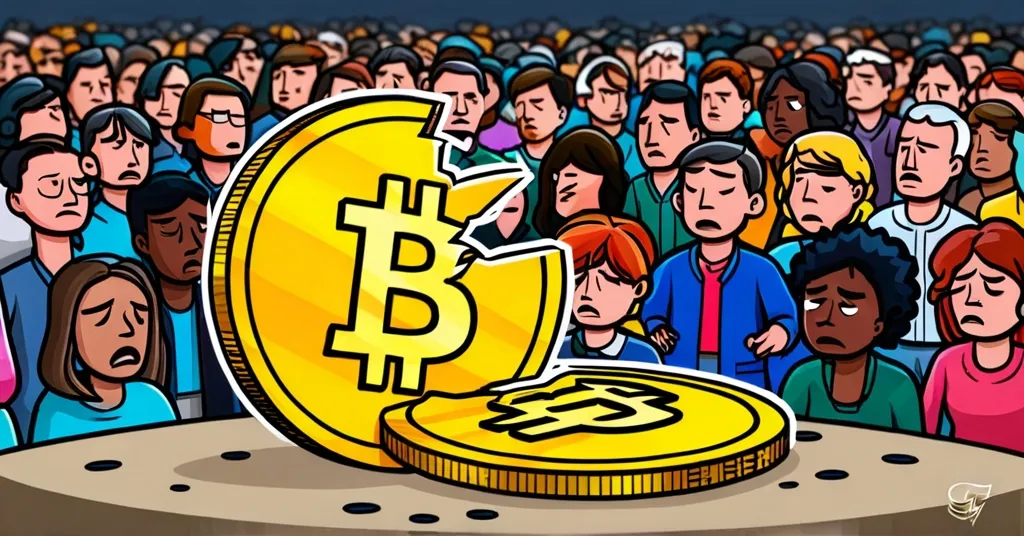Do Kwon’s Terra Collapse: Over 1 Million Victims, $50B Lost, Faces 9 Fraud Charges

Do Kwon’s Crypto Collapse Could Impact Over 1 Million Victims, US Prosecutors Estimate
US prosecutors estimate that over one million individuals were affected by the collapse of the Terra ecosystem, founded by Do Kwon of Terraform Labs. This catastrophic event in May 2022 wiped out a staggering $50 billion valuation in just 72 hours, leaving investors reeling and prompting the US government to plan a website to inform victims of their rights. Do Kwon, now facing nine felony fraud charges after his extradition from Montenegro, has pleaded not guilty and recently settled with the SEC for $4.5 billion. This case not only highlights the challenges of victim notification in the decentralized world of cryptocurrency but also brings to light the pressing need for transparency and regulation within the industry.
- Over 1 million victims affected by Terra’s collapse
- US plans to launch website for victim rights
- $50 billion lost in 72 hours
- Do Kwon faces 9 felony fraud charges
- $4.5 billion SEC settlement
- Challenges in decentralized victim notification
The Terra ecosystem, which once boasted a valuation of $50 billion, was considered the third largest cryptocurrency in the world. Its rapid rise was fueled by the promise of revolutionizing decentralized finance (DeFi), a concept that involves financial services built on blockchain technology without central financial intermediaries. But in May 2022, Terra’s collapse shattered the dreams of countless investors in a mere 72 hours. This event serves as a stark reminder of the volatility inherent in the crypto market, where the promise of innovation can quickly turn into a nightmare of financial ruin.
Do Kwon, the charismatic co-founder of Terraform Labs, now faces a legal storm. Extradited from Montenegro and standing before the US District Court for the Southern District of New York, he has pleaded not guilty to nine felony fraud charges. Despite this legal battle, Kwon reached a significant settlement with the SEC in April 2024, agreeing to a hefty $4.5 billion payment. This settlement, one of the largest in the history of cryptocurrency fraud cases, underscores the gravity of the charges against him.
The US government, recognizing the unique complexities of this case, is taking proactive steps to assist those affected. Acting US Attorney Daniel Gitner has proposed the creation of a dedicated website to inform victims of their rights. This initiative highlights the challenges posed by the decentralized nature of cryptocurrency transactions, where traditional methods of victim notification prove ineffective.
“The government would establish a website to help inform victims of their rights, calling other notification methods ‘impracticable.'” – Acting US Attorney Daniel Gitner
The Terra collapse is more than just a story of financial devastation; it’s a cautionary tale about the potential pitfalls within the crypto industry. When Do Kwon launched Terra, he boldly claimed it would surpass Bitcoin and Ethereum, aiming to build an ecosystem that could revolutionize decentralized finance. However, the US Department of Justice alleges that Kwon misled investors with false claims and manipulated markets to create a facade of success.
“When founder Do Kwon launched Terra, he claimed he wanted to build an ecosystem better than Bitcoin and Ethereum.” – From the narrative
“Kwon misled investors by falsely claiming the company’s blockchain products and manipulated their markets to create the illusion of a functioning and decentralized financial system.” – US Department of Justice
This case serves as a spotlight on the urgent need for clearer regulations and more robust consumer protections in the cryptocurrency space. The decentralized nature of crypto transactions, while a key feature of the technology, poses significant challenges for legal enforcement and victim notification. It’s a reminder that while decentralization and privacy are core tenets of the crypto movement, they must be balanced with measures to protect investors from fraud and deceit.
Despite the tragedy, the Terra collapse has spurred discussions on the need for better regulatory frameworks, potentially leading to a more stable crypto environment. This could be seen as a silver lining, where the industry learns from its mistakes and moves forward with greater accountability and transparency.
Here are some key takeaways and questions for our readers:
- How many individuals were affected by the Terra ecosystem collapse?
Over one million individuals were estimated to be affected by the Terra ecosystem collapse.
- What method will the US government use to inform victims of their rights?
The US government plans to establish a website to inform victims of their rights.
- When did the Terra ecosystem collapse occur, and what was the financial impact?
The Terra ecosystem collapsed in May 2022, resulting in a loss of its $50 billion valuation within 72 hours.
- What charges does Do Kwon face, and what has been his legal response?
Do Kwon faces nine felony fraud charges and has pleaded not guilty.
- What was the outcome of Do Kwon’s settlement with the SEC?
Do Kwon settled with the SEC for $4.5 billion in April 2024.
- What challenges does the decentralized nature of cryptocurrency transactions pose for victim notification?
The decentralized nature complicates traditional notification methods as cryptocurrency transactions often lack personal identifying information.
- What does the Terra collapse reveal about the need for regulation in the cryptocurrency industry?
The collapse underscores the need for clearer regulations and more robust consumer protections to prevent fraud and ensure transparency in the cryptocurrency market.
As we navigate the future of finance, the Terra collapse serves as a sobering reminder of the potential pitfalls in the quest for decentralization and innovation. While the promise of cryptocurrencies like Bitcoin and Ethereum remains strong, stories like these highlight the importance of vigilance and the need for a balanced approach to the challenges and opportunities that lie ahead.



